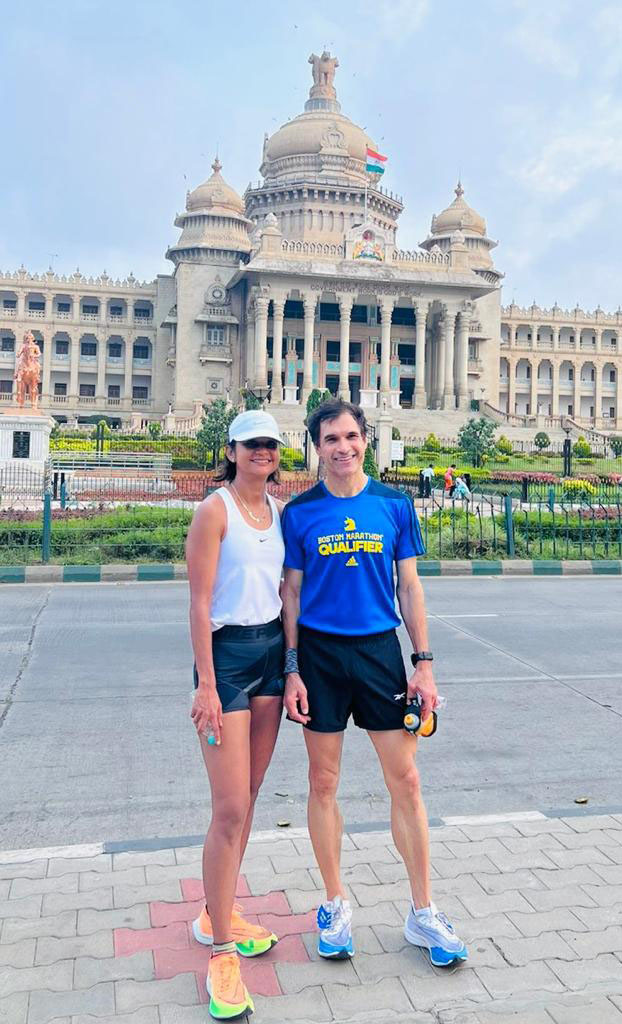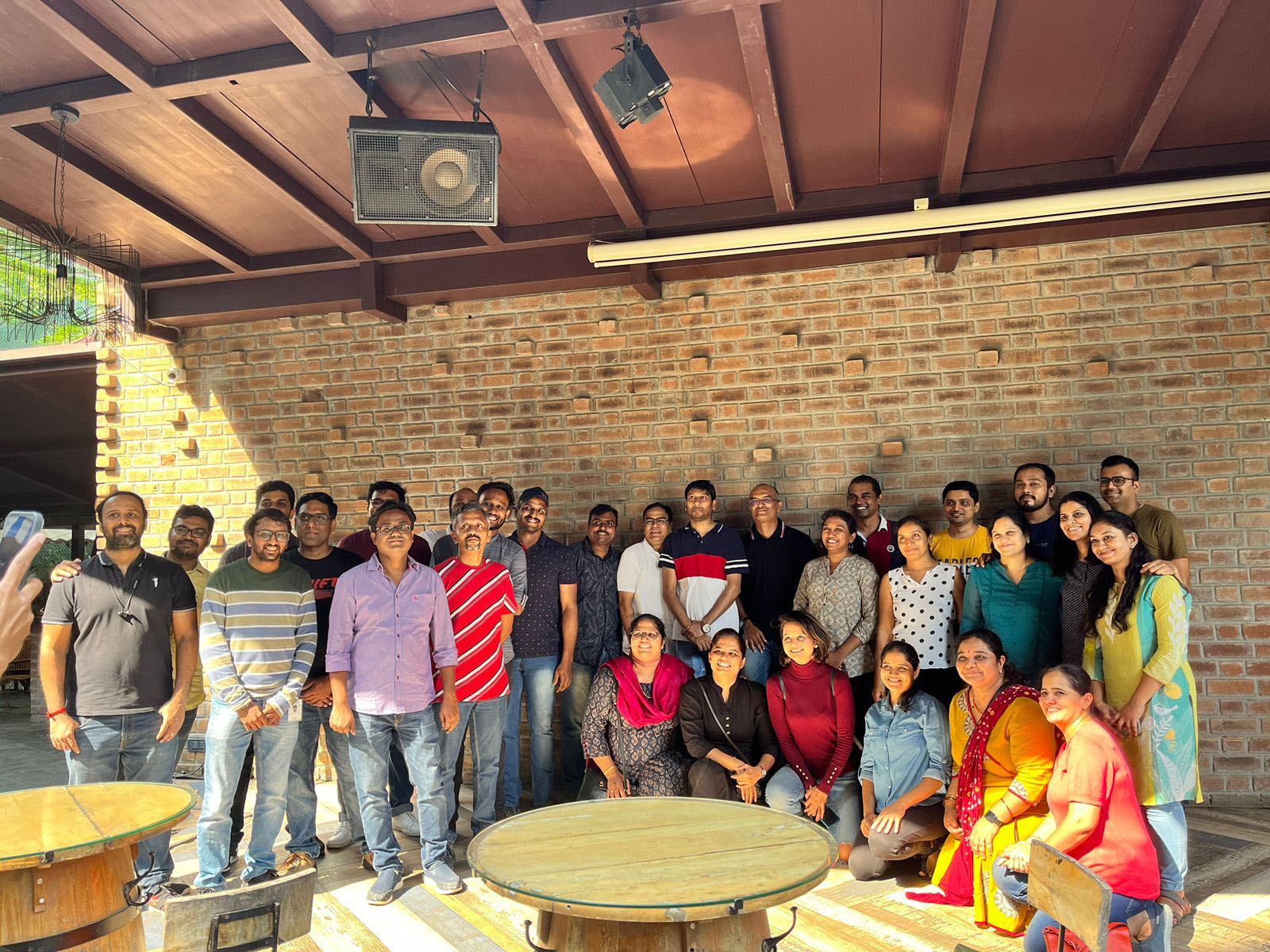Blogs
The latest cybersecurity trends, best practices, security vulnerabilities, and more
Good Skills Transcend Borders
By Vandana Arora · June 22, 2023
This stark fact didn't strike me initially but very soon as I went about my marathon training and execution that I sensed that things felt strangely familiar. Unlike many others runners, I found myself relating to the demands of the sport and felt like a fish in familiar waters.
Confused? Allow me to elaborate...
Marathons, or any sport, are akin to projects at work, demanding a systematic, structured planned approach and execution, with periodic check points and course corrections.
Here is an example of this point considering my recent project, I mean race, at Boston.
Kick Start:
An acceptance email from the Boston Athletic Association (BAA) to the 123rd Boston Marathon, which is every runner’s dream, and a race known fondly as the Olympics for Amateur Runners, kick started the journey. This mail was just like getting a project confirmation notice from an esteem customer.
And just like at work, to execute it successfully, I ensured that I had the right support team by my side, starting with India’s best coach (himself a 12-time Boston Marathon qualifier), a great S&C (strength and conditioning) coach and later a nutritionist. This was the start of our six-month journey.

Many don’t realize but running, steady state movement, is like active meditation, that calms the mind and body. And often I use that time alone to plan my workday and this quiet time has given me many eureka moments that lead to improvement in my life and my work. Nicely in sync with our soulful work philosophy.
Planning phase:
Step one was a situational analysis, to assess my present capabilities against those required for a successful race. And thereafter a strategy was developed which unfolded into execution tactics which were customized for me.
We planned every run and workout from there onwards till the penultimate day in great detail. There were milestones at regular intervals and, if we missed achieving them then it was back to the drawing table, re-strategized and re-planned. Just PERT chart to ensure that every step was correctly undertaken.
Taking the big picture into account, local races were treated as “assessment races” where our training for the past months was evaluated and the month ahead planned out to greater details. Never a 100% effort but still to race the distance and evaluate cost-benefit.

Risk management:
We even had risk management planned very well so that if I fell sick or missed one or two workouts then how to re-analyze the next week schedule, and so forth. Training runs were crafted keeping Boston hills into the account, and even occasionally the time of the day (10:40am) that I would be running the event.
All these precautions were similar to why we have senior leaders to guide us with their experience on projects. Trust the process and trust your mentor/leaders, the outcome is largely predestined.
Quantitative management:
Every aspect of run and progress was measured and managed quantitatively as we do with our projects. There was no decision taken without sufficient data at hand. No gut feel, no hear say. There are tools available which can analyze the data and give the broader picture.
Smart watches, and many tools available on the internet became very handy to analyze performance and reports for perusal.
Retrospective:
At the end of every sprint (to borrow the term from agile development) of a week we would retrospective to analyze what went right and what went wrong. Course corrections were made based on the retrospective. Occasionally, we took a step back to assess the situation better. Eg. My nutrition, my recovery, my physiology and so forth were occasionally a concern and we worked on them.
This is an important step with our code deliveries too so that next phase goes smooth. In our day-to-day life as well, if at the end of week we retrospect the week gone by it helps us with productive week ahead.
Execution:
Marathon Day is like the go-live day for our projects. There is a phase, Plan your Race – Race your Plan and so there is a lot of pressure to ensure everything unfolds as per the designated plan. The stakes are high but always there are some surprises along the way but we need to keep our composure under control. Adapting to the situation and working towards a solution is key. It takes practice and gradually we become better at it with each passing experience.
I have come across this situation many times where a project is stuck or is in an escalated situation. It could happen for a variety of reasons – dependencies, blockers, complex technology issues, customer’s expectations mismatch etc. Every step needs to be executed with great discipline, sheer tenacity, removing every blocker in the way and taking the project to the finishing line to win the customer.
Preparing for a marathon imparts certain traits on a runner, and a few of these are;
- Good marathon runners are detailed planners. Success is not an overnight development but months and months of preparation. To go into every minute detail and leaving little to chance.
- Good marathon runners are astute at multi-tasking. Amateur runners wear multiple hats and, for many working-running-mothers like me, it is necessary to manage multiple aspects of life with a cheerful outlook.
- Good marathon runners are excellent at networking. It takes a village to cultivate a child and so runners tend to be a part of running communities and this social quality makes them great at networking and marketing themselves. Personally I know many CEOs, doctors, lawyers, IPS officers and other successful people and all this is due to my running community. Rubbing shoulders with them every week imparts many good qualities, traits and skills and I feel reassured that I have a strong network of successful people I can lean on.

At Boston, I would say I succeeded in my project execution, when many fell by the wayside, because of the thoroughness in planning and execution.
Funny, but my experience with training and racing marathons has made me a better professional as I am more hungry to learn at work knowing that it pays off in my area of passion too.

RECENT NEWS
-
Jun 17, 2025
Trellix Accelerates Organizational Cyber Resilience with Deepened AWS Integrations
-
Jun 10, 2025
Trellix Finds Threat Intelligence Gap Calls for Proactive Cybersecurity Strategy Implementation
-
May 12, 2025
CRN Recognizes Trellix Partner Program with 2025 Women of the Channel List
-
Apr 29, 2025
Trellix Details Surge in Cyber Activity Targeting United States, Telecom
-
Apr 29, 2025
Trellix Advances Intelligent Data Security to Combat Insider Threats and Enable Compliance
RECENT STORIES
Latest from our newsroom
Get the latest
Stay up to date with the latest cybersecurity trends, best practices, security vulnerabilities, and so much more.
Zero spam. Unsubscribe at any time.
